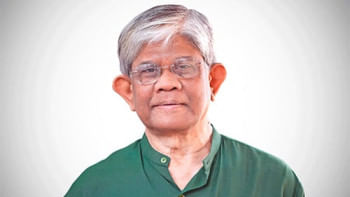Why do our politicians consider themselves indispensable?

Greek Finance Minister Yanis Varoufakis resigned on July 6, saying he was told shortly after Greece's decisive referendum result that some other Eurozone finance ministers and the country's other creditors would appreciate his not attending the ministers' meetings. "I shall wear the creditors' loathing with pride," Varoufakis said in his resignation announcement.
Greeks voted overwhelmingly to reject creditors' proposal of more austerity measures in return for rescue loans, in the country's first referendum in 41 years. Paradoxically, his resignation came in the aftermath of the government's victory, not defeat, in the referendum. The referendum "will stay in history as a unique moment when a small European nation rose up against debt-bondage," Varoufakis said. He added that "I consider it my duty to help the PM exploit, as he sees fit, the capital that the Greek people granted us through yesterday's referendum.
In Canada, the conservative party has been in power for two consecutive terms, and it is very likely that the party will return to power as well in the next general election scheduled for next October. Yet, four cabinet ministers have called it a day over the last one year alone. All of them had their absolutely secured constituencies to return as MP in the ensuing election. The latest resignation was announced by the foreign minister and a three-term MP. "I will miss this place very much, and many of the people in it on all sides," the minister told the House of Commons. "But the time has come for me to start a new chapter in my life," said the 45-year old departing minister.
In sharp contrast to what is being practiced in all the Westminster democracies in particular, people of Bangladesh have never seen an incumbent minister, in particular, or a politician, in general, to call it a day for any reason, whatsoever.
A few years ago, the Federal Immigration Minister of Canada resigned from her cabinet post, due to a sworn statement of an illegal immigrant and pizza shop owner alleging that the minister promised to legalise his status in return for feeding her campaign volunteers with free pizzas during the parliamentary election. Notwithstanding the fact that the accuser had multiple convictions on charges involving frauds and embezzlements in the Canadian courts itself, the minister had to resign on ethical grounds. After his deportation to his native country, the accuser retracted his statement. The ethics commissioner's subsequent clearance of her of any immorality did not give the minister her job back and she never returned to political life.
In 2002, the former president Dr. Badruddoza Chowdhury had no constitutional or legal obligation to resign when the BNP parliamentary party asked him to do so. The constitution has empowered the parliament, not any political party, to impeach the president under a set of well-defined circumstances, none of which was applicable for President Chowdhury. His decision to resign from his position was absolutely based on ethical consideration since he realised that he no longer carried the confidence of the electorates who elected him. BNP, in an unprecedented move in the history of parliamentary democracy, adopted a resolution supported by the then PM, asking the president to resign immediately or else an impeachment proceeding would be started against him. He was apparently accused of not attributing the status of the 'proclaimer of independence' to the founder of BNP in his presidential message, which is neither true nor in concurrence with the attachment of the constitution of the Republic. In fact, President Chowdhury did uphold the integrity of the highest office of the land by not resorting to the brazen distortion of history.
I wrote a piece titled, "A self-respecting statesman's dignified exit," in which I eulogised him for his great statesmanship. I ended my piece with the following conclusion: "Metamorphosis of Prof. Chowdhury from a politician to statesman was rather rapid and stunning in many ways and his ouster was equally unexpected. His emergence from a politician to a statesman once again proved that, given the opportunity, our society is not totally devoid of people who are able to conduct themselves to earn the trust and respect of all across our political divides".
However, after his resignation, did Prof. Chowdhury live up to our expectations? We would have been happier to get an affirmative answer to this soul searching query. Following his resignation, he formed his own political party for which he had to pay a heavy price in the hands of his former colleagues and comrades. A few weeks after his resignation, he joined a political rally in Paltan Maidan organised by a few left-leaning political parties, but his arduous and secret journey to Paltan Maidan, as was published in the media, sounded more like the escape story of a fugitive trying to fool his impending captor. His former party's 'intellectual' supporters headed by a former VC (who is now portraying himself as the principal protagonist of democracy), issued a statement urging the then PM to be tougher (as if what was being done by the state machinery and the cadres was not enough) on the 'enemies of democracy', which, probably manifested into the virulent attack on Dr. B Chowdhury, a new born 'enemy of democracy'.
As if that wasn't enough, Prof. Chowdhury, a former duly elected President of the Republic, personally ran for a parliamentary seat from two constituencies and miserably lost in both. Yet, now in his mid-eighties, he did not think it was high time for him to call it a day, as if the nation still needed his indispensable service. To offer his yet unexploited service to the nation, he has now joined hands with his former party and comrades to wage a 'mass movement' to 'restore' democracy under the leadership of the very leader on whose behest he was under impending impeachment from presidency some thirteen years ago.
The writer is the Convenor of the Canadian Committee for Human Rights and Democracy in Bangladesh.

 For all latest news, follow The Daily Star's Google News channel.
For all latest news, follow The Daily Star's Google News channel. 



Comments